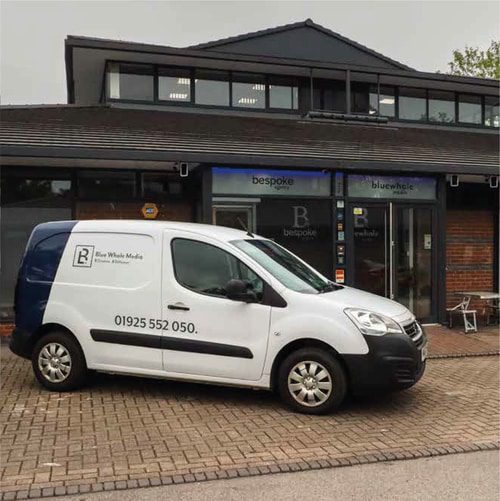WordPress Experts in Liverpool.
WordPress has its origins as a simple blogging platform, but today it is a powerful web development platform. WordPress powers over 40% of all online websites – that’s over one-third of the Internet! With such a popular following, WordPress has a massive developer community that constantly brings new features, innovations, plugins and themes to use. It is no surprise that this CMS is a favourite for our local team of website designers in Liverpool.
How Does Blogging Improve Your Business Website SEO?
The key to generating niche visitors to your site is SEO or search engine optimization. You improve the probability of getting top rankings in search results by optimizing your sites for search engines. Naturally, this boosts your chances of getting visitors to your website.
That said, is blogging beneficial to SEO? We’ll get into that in a moment. Before that, we’ll first go over how a search engine works.
How Does a Search Engine Work?
Search engines are programs that search for and index websites so that users can find relevant information when they enter keywords or search queries into the search engine.
The main components of a search engine are:
Web crawlers (also called spiders): These are programs that scan the Internet and index websites so that they can be searched.
An index: This is a database that stores all the information that has been gathered by the web crawlers.
A search algorithm: This is a set of rules that determines how the indexed information will be ranked when users enter keywords or search queries.
When you enter a keyword or search query into a search engine, the search engine will use the search algorithm to find websites that are relevant to your keyword or query. The results will be displayed in order of relevance, with the most relevant websites appearing first.
Some of the most popular search engines are Google, Yahoo, and Bing.
How Does SEO Work?
Now that we know how a search engine works, let’s take a look at how SEO works. When optimizing your site for search engines, there are two main types of activities that you can perform.
On-Page SEO
On-page SEO refers to all the things that you can do on your website to help it rank high in search engine results pages (SERPs.) It includes optimizing your site’s title tags, meta descriptions, images, and other aspects of your website’s code and content.
On-page SEO is a crucial part of any good SEO strategy, but it’s only one piece of the puzzle.
Off-Page SEO
Off-page SEO refers to all the things that you can do outside of your website to help it rank higher in SERPs. This includes activities such as link building, creating high-quality content, and so on.
While on-page SEO is important, off-page SEO is often what separates the top-ranking sites from the rest of the pack.
Therefore, the objective of SEO is to make your site trustworthy and friendly in the eyes of both users and search engines. By optimizing your site for both users and search engines, you’ll be more likely to achieve high rankings in SERPs.
At Blue Whale Media, our SEO agency in Manchester can undertake both on-page and off-page SEO work for our clients in order to achieve the best ranking results possible.
Is Blogging Beneficial to SEO?
Yes, in our own professional experience we can say that blogging does help SEO. Blogging leads to a wealth of possibilities for improving your rankings on search engines. Using blogs to offer relevant solutions to users’ queries is the most significant of all.
Furthermore, if you maintain your blogs with top-quality content on a regular basis, it will improve your site’s overall SEO. Aside from that, you may use a variety of on-page SEO methods to boost your site rankings.
Here are some tips on how blogging can be beneficial to SEO:
Blogs Can Help Increase Dwell Time
Dwell time is the amount of time a visitor spends on your website before returning to the SERP. The average dwell time for a first-page result is 3 minutes and 10 seconds. Blogs can improve dwell time if they are interesting and informative.
If a blog post is well written, it can keep a reader engaged and encourage them to explore more of your website. This will send positive signals to Google that your site is worth staying on.
Blogs Can Assist You in Generating Inbound Links
Inbound links are links from other websites to your site. They are also known as backlinks. Inbound links are important for SEO because they show search engines that your site is popular and relevant.
The more inbound links you have, the higher your site will rank on search engine results pages. And one of the best ways to generate inbound links is to write informative and engaging blog posts. When you create content that is worth sharing, other websites will be more likely to link to it.
Blogs Can Assist You in Ranking for Long-Tail Keywords
Long-tail keywords are 3 or 4 key phrases that are quite specific to what you sell. They are usually low in search volume but have a high conversion rate.
Since keywords are so specific, they are often less competitive than short-tail keywords. This means that it is easier to rank for long-tail keywords. And since blogs are usually longer than other types of web content, they are the perfect platform for targeting these keywords.
Blogs Can Help You Attract More Backlinks
Backlinks are one of the most important ranking factors in SEO. A backlink is created when one website links to another. The more backlinks you have from high-quality websites, the higher your site will rank in search engine results pages.
Blogging is a great way to attract backlinks. When you write helpful and informative blog posts, other website owners will be more likely to link to your site. This will help you build authority and improve your SEO.





